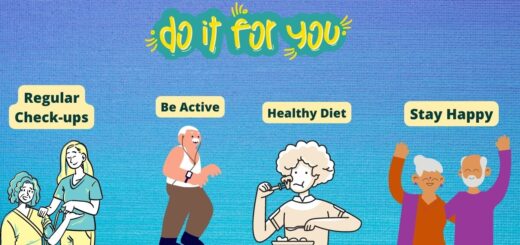How To Prevent Getting Scammed, Especially If You Are Above 60

There are many different types of scams, but they all have one thing in common: they are designed to take advantage of unsuspecting victims.
The best way to protect yourself from becoming a victim of a scam is to educate yourself about the most common types of scams and how to identify them.
One of the most common types of scams that are rising in number is the so-called “elderly scam.” This type of scam targets seniors who may be more vulnerable to deception. The scammer will typically contact the senior by phone or email and claim to be a representative of a government agency or a business. The scammer will then try to trick the senior into giving them personal information or money.
Be aware of common scams
There are many types of scams that target seniors. Some common scams include:
Financial scams: These scams involve convincing a senior to invest their money in a false business venture or to give away their life savings.
Identity theft: In this type of scam, a criminal uses a senior’s personal information to open new accounts, make purchases, or withdraw money from their accounts.
Medicare/health insurance scams: In these scams, criminals pose as health care providers or Medicare representatives in order to bill Medicare or a senior’s private health insurance for services that were never provided.
Telemarketing scams: In these scams, a caller will try to sell a senior a fake product or service, or will try to get them to make a donation to a fraudulent charity.
Phishing Scam: This type of scam involves the scammer sending an email or text message that appears to be from a legitimate source, such as a bank or a government agency. The message will usually include a link that takes the victim to a fake website that looks real. The victim is then asked to enter personal information, such as a credit card number or Social Security number.
Fraudulent home repairs: In this type of scam, a criminal will offer to do home repairs for a senior, but will either do shoddy work or overcharge for their services.
Lottery scams: In a lottery scam, a scammer will contact an elderly person and tell him or her that he or she has won a lottery. The scammer will then ask for personal information.
Caregiving scams: Caregiving scams are when someone offers to provide caregiving services to an elderly person, but then steals their money or takes advantage of them in some other way.
Romance scams: Here the scammer will pretend to be romantically interested in their victim and will try to trick you into spending money for them (as cash or as valuable gifts).
If you are a senior or know someone who is, it’s important to be aware of these types of scams.
There are many other types of scams, but these are a few of the most common. If you are ever contacted by someone who you do not know and who is asking for personal information or money, be very careful. Do not give out any information or money unless you are absolutely sure that you know who you are dealing with. Always check with a trusted family member or friend before making any financial decisions.
If you think you may have been the victim of a scam, contact your local law enforcement agency or the Federal Trade Commission.
Tips To Avoid Falling For Scams:
If you’re over 60, you’re more likely to be scammed than younger folks. As we age, we become more vulnerable to scams. Scammers target the elderly because they tend to be more trusting and less likely to report a crime. Here are some tips to help seniors avoid being scammed:
1. Be aware of the most common scams. Some of the most common scams include fake lotteries, fake charities, and false promises of easy money. Don’t let anyone rush you into making a decision.
2. Don’t give out personal information. Be suspicious of anyone who asks for your Social Security number, bank account information, or credit card number.
3. Don’t wire money to someone you don’t know. Once you wire money, it’s nearly impossible to get it back.
4. Don’t pay for something using a prepaid debit card. Scammers will often ask for payment using a reloadable card.
5. Hang up the phone if you get a call from a government imposter. Government imposters might claim you owe money or that you’re being sued. They might also threaten to arrest you if you don’t pay up.
6. Don’t respond to email, text, or pop-up messages that ask for personal information. These are called phishing scams.
7. Check out a charity before you donate. Make sure the charity is legitimate by doing a little research.
8. Be skeptical of free offers. If it sounds too good to be true, it probably is a scam.
9. Ignore unsolicited offers. If you didn’t ask for it, don’t open it.
10. If you’re uncomfortable with a situation, trust your instincts and walk away.
11. Use security software. Install anti-malware
Tips To Avoid Being Frantic While being Scammed
No one likes to think that they could be scammed, but unfortunately, it happens to people of all ages. Elder scams are especially common and can be very frightening for the victim. But there are some things you can do to protect yourself, and avoid becoming frantic or scared if you find yourself in this situation.
First, try to stay calm. If you panic, it will be harder for you to think clearly and make good decisions.
Second, don’t be afraid to hang up the phone or close the door if you feel like you’re being pressured into something. Scammers are often very persistent, but you have the right to end the conversation at any time.
Third, do your research before you give any personal information or money to anyone. If someone contacts you out of the blue and asks for money, be very suspicious. Get as much information as you can about the person and the so-called “opportunity” before you make any decisions.
Finally, trust your gut. If something feels wrong, it probably is. If you have any doubts about a person or a situation, it’s best to err on the side of caution and walk away.
What To Do If You Are Scammed?
If you have been the victim of a scam, there are a few things you can do to help yourself recover financially.
- First, if you have lost money, contact your bank or credit card company. If you have given your bank or credit card details to the scammer, report the fraud to your bank or credit card company as soon as possible. They may be able to cancel any transactions that have been made and/or help you get your money back.
- Second, you can also file a complaint with the Federal Trade Commission. The FTC collects complaints about companies, businesses, and scams. They may be able to help you get your money back or at least stop scammers from scamming others.
- Third, change your passwords. If you have given the scammer your passwords, be sure to change them immediately. Also, be sure to change passwords on any other accounts that may be linked to the one that was compromised.
- Fourth, you should also warn your friends and family about the scam, so they can avoid being scammed as well.
- Fifth, keep a record of what happened. Keeping a detailed record of what happened can be helpful if you need to report the scam to the authorities or take legal action. Be sure to keep any emails, chat logs, or other communications that you had with the scammer.
- Finally, you can report the scammer to the FBI’s Internet Crime Complaint Center.
While it can be difficult to recover from being scammed, it is important to remember that you are not alone. There are many resources available to help you, and you can take steps to prevent being scammed in the future.




